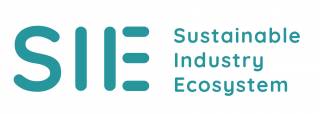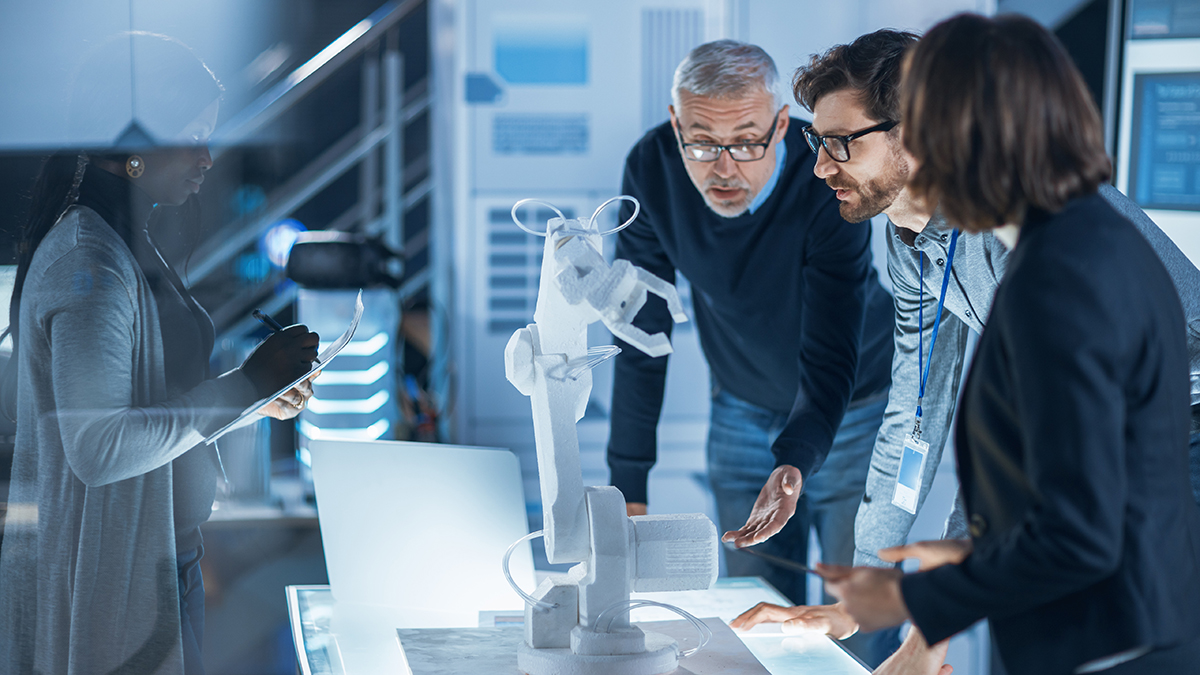Harri Nieminen from VTT gave a presentation about SIX initiative scope and the initial vision, to build the background for the actual workshop work. SIX, Sustainable Industry X, is a national initiative supercharging Finnish industry performance and sustainable growth through innovation and knowledge.
Companies outlook to 2025 in terms of RDI environments and education
Several topics relating to the changing business environment and markets were included in the agenda. The summaries after each presentation led to lively discussions.
In a few years, digitalization is everywhere, and big companies will have strong investment programs. The participants estimate that the importance of platforms will grow both in companies’ internal integrations as well as in integrations between companies.
Automation and information will be integrated to products. The complexity of products will grow, and the responsibility requirements of the product producers and service programs will grow in importance.
Some participants anticipate that traditional manufacturing will transfer to Eastern Europe. The traditional manufacturing may also concentrate on nearby areas thanks to green transition, the recovery and resilience plan of Sustainable Growth Programme.
Joint use in RDI infrastrucures will grow in importance by 2025
The topic of resources of the RDI ecosystem – innovation platforms, infrastructures and investments – resulted an active discussion.
The participants evaluate that in most relevant RDI infrastructures joint use will be organised, but the full usage is not yet fully fruitful by 2025. The participants see that the investments will be realized through funding, and that some amount of industrial money will be spent over company boundaries to build and strenghten common RDI infrastructures.
In terms of research and development the importance of circular economy and material research will be more and more in focus. That is also the case of artificial intelligence which will be utilized through whole life cycle of the materials.
In terms of skills and education – vocational and higher education and continuous learning – reconciliation of economic and sustainable growth will become more important.
The RDI infrastructures will start to support companies’ PoC’s – proofs of concept, experiments and advanced demo projects that reflect real-world scenarios. The participants estimate that infrastructures will widen their product and service offerings to the companies – this will, in turn, empower the prototype work of research companies and organisations.
Companies’ outlook to 2035
Workshop participants estimate that in 2035 reshoring will continue and grow. Finland needs to have competitive advantages from flexible automation to compete with, for instance, Eastern Europe. Shared infrastructures will become more common, and maturity of processes related to their usage will grow.
According to the participants, human resources will become even more of a problem to companies. Continuous learning will not cover enough people fast enough, foreign workforce will be important part of the solution. Polarization of the human resources will continue.
Infrastructures will transform to hybrid environments: digital twins and physical labs. Learning analytics will support the efficiency of continuous learning. Platform economy will keep growing, and products from different companies will work together as part of the platform.
One of the most important “Must Win” battles, in addition to digitalization, is to make the industry sector interesting for youth again.
Additional information:
Mika Ijäs
Principal Lecturer, Industrial Engineering
Tampere University of Applied Sciences
mika.ijas@tuni.fi, +358 50 4471 189
Photo: Shutterstock
Text: Hanna Ylli


